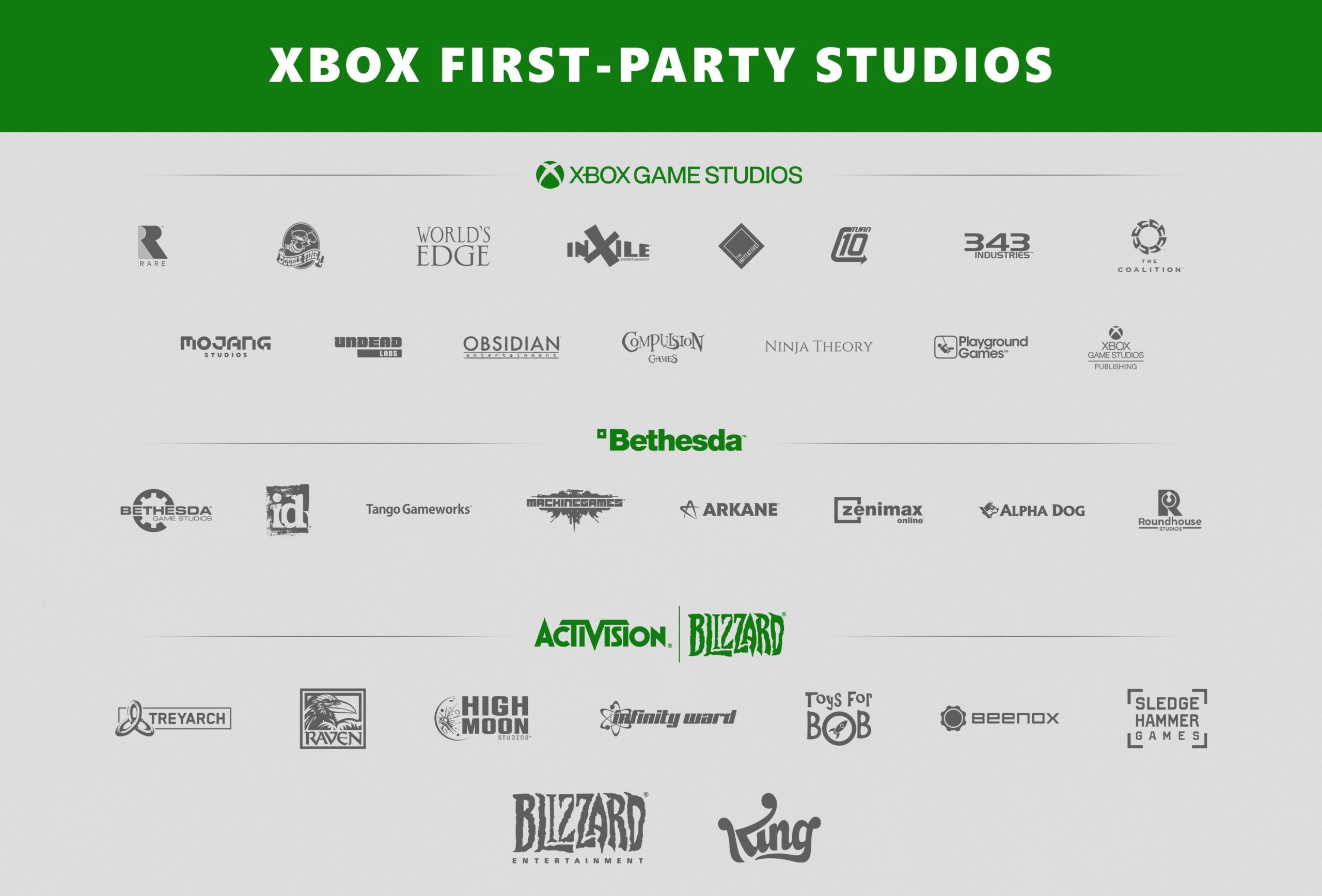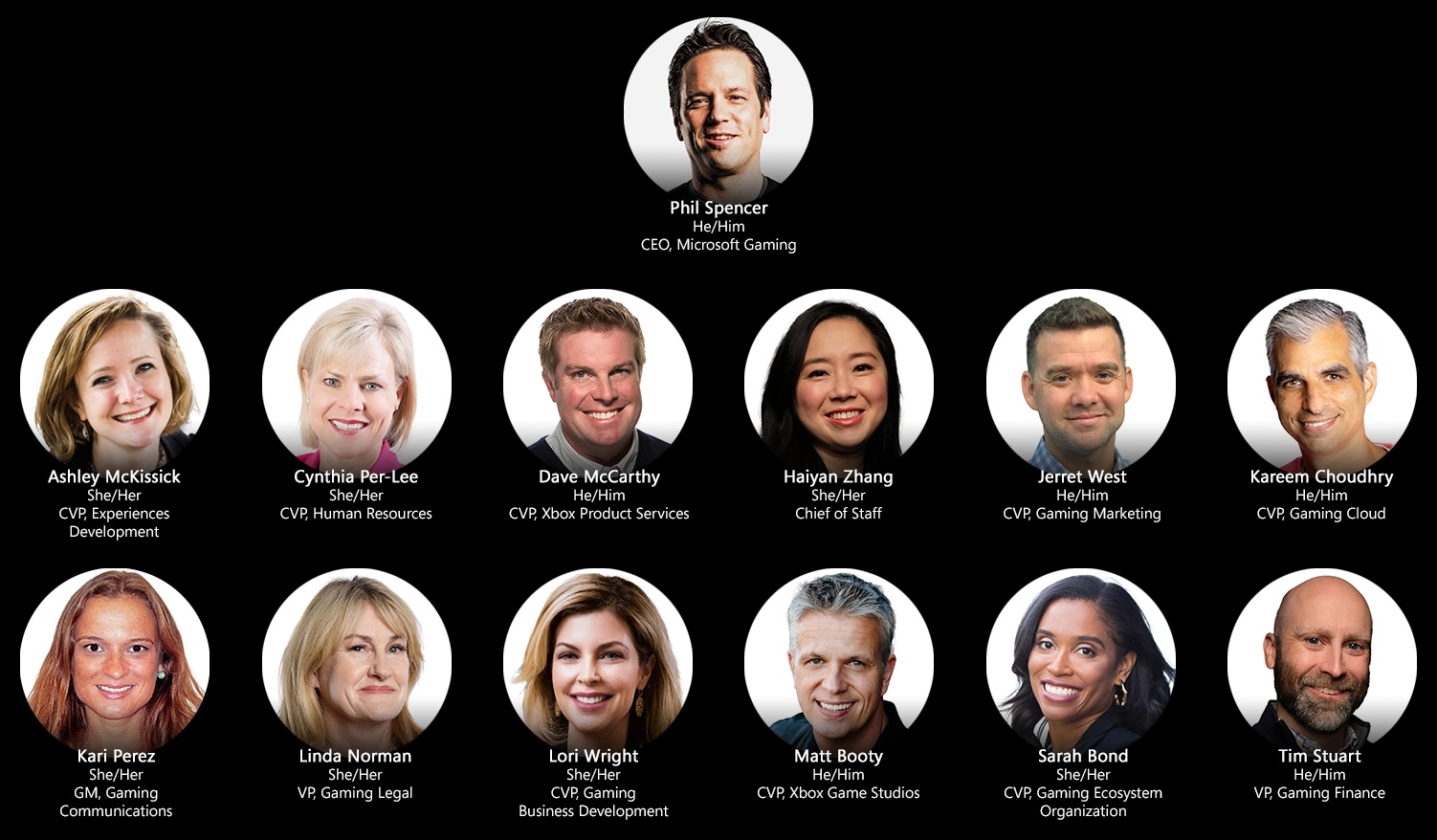Last month Microsoft announced it had purchased Activision Blizzard, one of the largest publishers in in the video game industry. This came after a number of high-profile purchases over the last few years including Bethesda in 2020 and a number of smaller development studios. I didn’t initially comment on this as it was worth waiting and getting a few details first. And one of the advantages of having few readers is there is little pressure to respond to the news cycle.
Microsoft has been involved in video games for a long time with DOS and then Windows becoming dominant in the personal computer market — the latter still being the main focus for PC gaming. They moved into the console market just over twenty years ago and the financial investment they put in immediately put them right in the competition though the original Xbox sold relatively poorly compared to Sony’s PlayStation 2; their main competitor.
They became far more successful with the Xbox 360 which was released in 2005 and remained on the market until the Xbox One was released eight years later. The Xbox One had a terrible start but did become successful though selling roughly half as well as the PlayStation 4. They are now on their fourth home console with the Xbox Series X (also continuing their confusing choice of names). It is too early to predict where this next generation will go — especially with the continued shortages of available units but the Xbox brand will at the very least, retain a significant place.
I haven’t mentioned Nintendo which has been there the whole time though not considered a direct competitor. The Nintendo Switch is still by far the most dominant home console though whether this continues is hard to say as Nintendo has seen more than a few rises and falls in close to forty years of involvement in the home console market.
One more aspect before getting to the main purpose of this post, is to point out that both Microsoft and Sony have noticeably began bringing their brands to the PC market. The Xbox brand is integrated into Windows 10 and most of the games and services are available on PC as well as console. Sony is slowly doing the same with many major games coming to PC though the console releases remain the priority. These moves suggest the brands may move truly beyond the consoles themselves and become services available on a variety of different devices in the long-term.
For now, Microsoft’s moves to acquire so many studios suggests it is trying to address a major weakness of the brand and that is the lack of exclusive titles available to the system.
In all its history in the market, Microsoft’s main weakness has been that most of its games have been available elsewhere. Even if not on PlayStation, the vast majority of their titles are available on PC. In 2015, I wrote an article where I listed the best genuine console exclusives for Xbox 360 and had to amend it two weeks later when one of them was released on PC. I excluded the Halo series which made it even more of a challenge as I didn’t want to include games that were merely “good”. The four other titles remain exclusive to the Xbox platform but every Halo game except Halo 5: Guardians is now available on PC. And it wouldn’t surprise me if a few more of those games were ported to PC in the near future. In short, Microsoft has very few exclusive games to attract players outside of series like Halo, Gears of War and Forza.
Below is an image Microsoft released showing its studios updated with Activision Blizzard and its subsidiaries.

There are a lot of big names there and Bethesda and Activision Blizzard certainly stand out. They own the rights to big name games including Warcraft, StarCraft, Diablo, Doom, Call of Duty, The Elder Scrolls and Fallout. They also presumably now own countless dormant but well known franchises that could be revived. If times had been different as say twenty years ago, this could have been pretty exciting. But for a number of reasons, these acquisitions are all meaningless.
The main and overarching reason is that for most of the studios big and small, their best days have now past. This is actually similar to Microsoft’s high-profile purchase of Rare Studios twenty years ago. The best days of that studio were already behind them and most of the talent had left. They still are around today and have made some great games but they aren’t at all what they once were.
Blizzard is in a similar position. The company arguably reached its zenith over ten years ago and others would argue with World of Warcraft years before. Their games still sell well but are much better remembered for their older games than their new.
Activision is a publisher that seems now to rely almost exclusively on the Call of Duty franchise which is still doing well year to year but this cannot go on forever. I occasionally try a new game in this series and every time, I see little difference between it and the titles release fifteen or more years ago. And absurdly it seems, Microsoft has thrown out any competitive advantage they could have had by announcing this profitable series would not be exclusive to Xbox.
It is a similar case with Bethesda which was acquired in 2020. Their games are still multiplatform and I would argue that the best days for a number of their studios are behind them too. There has not been a new mainline Elder Scrolls game for over a decade and the last Skyrim, has been re-released over and over. Similarly, after a strong start, their last two Fallout titles were big steps down. It remains to be seen how their upcoming title Starfield will turn out. The Doom series has admittedly seen a strong revival but if Microsoft doesn’t keep the next game exclusive, there will be little advantage in this.
As for the other studios they have acquired. They certainly have some talent among them and Double Fine at least proved they still have it with last year’s Psychonauts 2. Minecraft is still a huge money maker. Ninja Theory and Obsidian are still talented developers. 343 and The Coalition will keep up with Halo and Gears of War no doubt.
Their new and very expensive acquisitions however, are not what they were and I expect it is a big gamble whether or not they’ll be worth the investment in the long run.
The other problem is one best shown visually with this image of Microsoft’s gaming division.

Notice something odd? Well, this would have been extremely odd not a decade ago but they now list their pronouns. The rot that has infested most of our culture has also firmly taken hold in gaming and gotten progressively worse over the last decade.
When I refer to Microsoft’s acquisitions as “husks” this refers to more than just their recent output and to what they’ll actually be allowed to make. Many of the intellectual properties Microsoft now owns are sure to be “problematic” in some way and it is doubtful whether Microsoft will allow them to be what they were anymore than Activision did. Any new releases will have the trademarks and be in some way recognisable but inwardly they’ll be empty vessels, safely produced by committee. They’ll be bloated with all the worst aspects of corporate interference and creatively crippled by the evil and destructive social ideology they’ve adopted too. We saw that with GEARS 5 in 2019.
In the past, an acquisition by a company like Electronic Arts was often the death of small studios as they fleeced them for all the profit they could make before closing them when the profits slowed. With Microsoft, this probably won’t happen short of a complete financial disaster. I don’t even think the executive team really much cares as Microsoft is flushed with billions they can afford to lose.
I don’t really see this continued and deliberate decline as a bad thing though. I still live in hope these corporations will collapse and it is better than a company like Microsoft gets all the more top-heavy before they sink. What made all these developers and publishers great are still widely available and most can be acquired legally without giving Microsoft a single cent.
